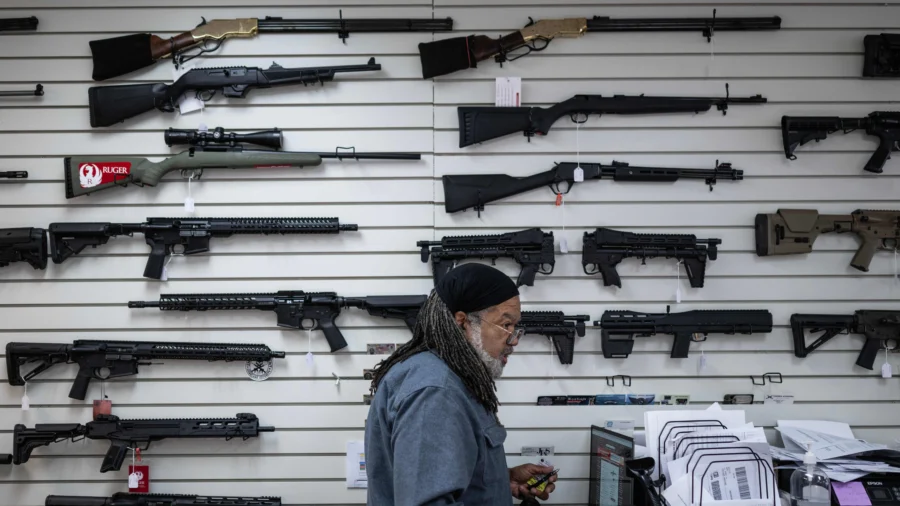The U.S. Supreme Court on Jan. 13 declined to look at a lower court ruling that upheld Maryland’s law requiring a state license to buy a handgun, letting the law stand.
Justices included the decision in an order list and did not offer any explanation for the move.
Maryland Shall Issue, a gun rights group, and others had challenged a U.S. Court of Appeals for the Fourth Circuit ruling. The appeals court in 2024 found in a 14–2 ruling that the Maryland law introduced delays in obtaining firearms but did not infringe on constitutional rights.
“We conclude that the Supreme Court in Bruen foreclosed the plaintiffs’ ‘temporary deprivation’ argument by stating that, despite some delay occasioned by ‘shall-issue’ permit processes, this type of licensing law is presumptively constitutional because it operates merely to ensure that individuals seeking to exercise their Second Amendment rights are ‘law-abiding’ persons,” U.S. Circuit Judge Barbara Milano Keenan wrote for the majority in August 2024.
In a 2022 decision known as Bruen, the Supreme Court struck down a New York gun permitting scheme that required licenses to carry guns and allowed officials to deny licenses even when applicants met the statutory criteria.
“When the Second Amendment’s plain text covers an individual’s conduct, the Constitution presumptively protects that conduct. The government must then justify its regulation by demonstrating that it is consistent with the Nation’s historical tradition of firearm regulation,” the Supreme Court majority said at the time.
The court also emphasized that certain requirements, such as background checks that introduce a delay in obtaining guns, do not necessarily infringe on constitutional rights. The justices did not foreclose challenges to such schemes “where, for example, lengthy wait times in processing license applications or exorbitant fees deny ordinary citizens their right to public carry.”
In their petition to the Supreme Court, Maryland Shall Issue and the other petitioners said the Fourth Circuit misconstrued the Bruen decision when it came to licensing schemes that include requirements such as safety training. Complying with the Maryland requirements “places significant burdens on possession and acquisition of a handgun unknown at the Founding and is an outlier even in modern times,” they said.
Maryland officials said in response that the Maryland law is constitutional because it contains narrow standards, such as a background check, and has not been “put toward abusive ends.”
Maryland Attorney General Anthony Brown told news outlets in a statement that the Supreme Court’s denial of the petition was great news.
“This law helps prevent tragedies and keeps families safe, by keeping guns away from those who want to harm our communities,” Brown said. “Thoughts and prayers are not enough—Maryland’s Handgun Qualification Licensing Law is a key tool in our fight to end gun violence.”
Maryland Shall Issue said on Facebook that the denial is “far from the final word on the issue” as other related cases may be later taken up by the Supreme Court.
From The Epoch Times

